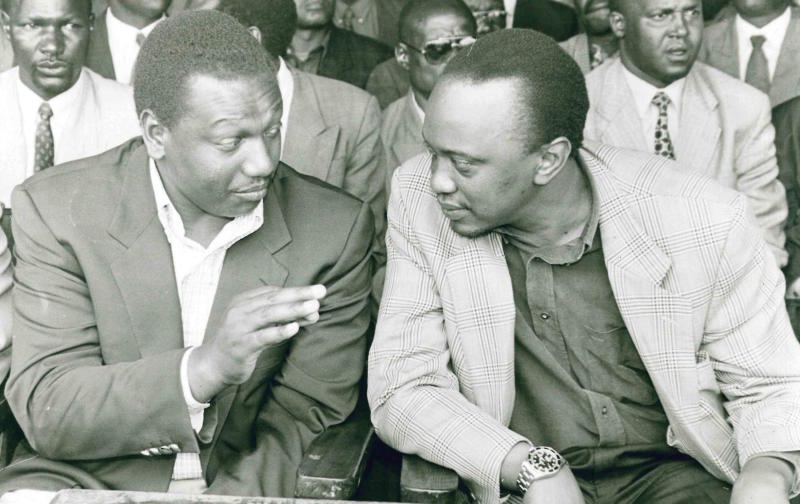×
The Standard e-Paper
Fearless, Trusted News

Then KTB Chairman Uhuru Kenyatta chats with Eldoret North MP William Ruto during a peace meeting in Molo, Nakuru in July 2000 [File]
After a blistering four-year campaign across the country, Deputy President William Samoei Ruto, yesterday, formally kicked off his journey towards becoming Kenya’s fifth President.